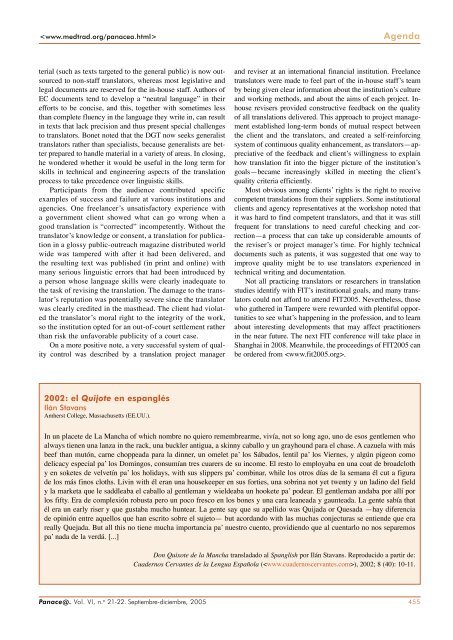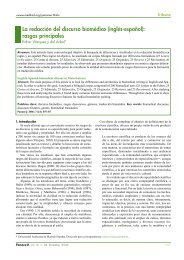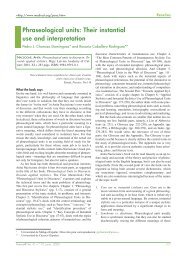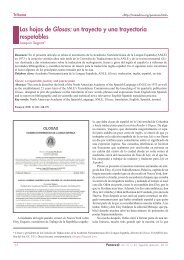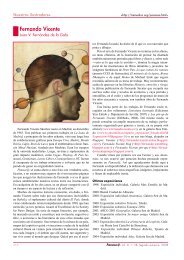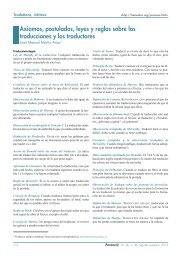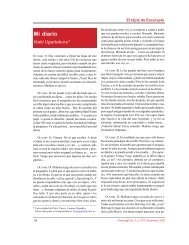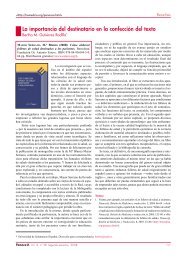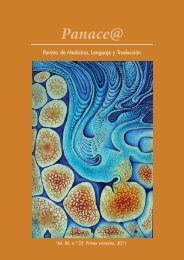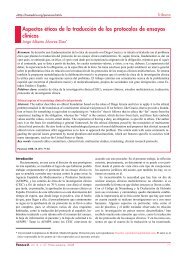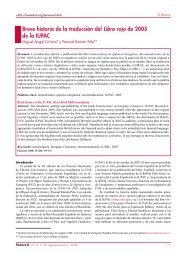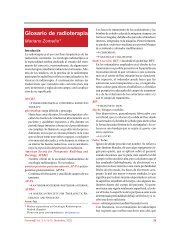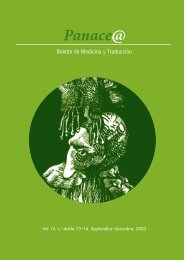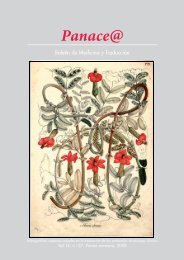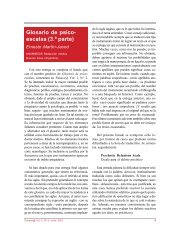Create successful ePaper yourself
Turn your PDF publications into a flip-book with our unique Google optimized e-Paper software.
Agenda<br />
terial (such as texts targeted to the general public) is now outsourced<br />
to non-staff translators, whereas most legislative and<br />
legal documents are reserved for the in-house staff. Authors of<br />
EC documents tend to develop a “neutral language” in their<br />
efforts to be concise, and this, together with sometimes less<br />
than complete fluency in the language they write in, can result<br />
in texts that lack precision and thus present special challenges<br />
to translators. Bonet noted that the DGT now seeks generalist<br />
translators rather than specialists, because generalists are better<br />
prepared to handle material in a variety of areas. In closing,<br />
he wondered whether it would be useful in the long term for<br />
skills in technical and engineering aspects of the translation<br />
process to take precedence over linguistic skills.<br />
Participants from the audience contributed specific<br />
examples of success and failure at various institutions and<br />
agencies. One freelancer’s unsatisfactory experience with<br />
a government client showed what can go wrong when a<br />
good translation is “corrected” incompetently. Without the<br />
translator’s knowledge or consent, a translation for publication<br />
in a glossy public-outreach magazine distributed world<br />
wide was tampered with after it had been delivered, and<br />
the resulting text was published (in print and online) with<br />
many serious linguistic errors that had been introduced by<br />
a person whose language skills were clearly inadequate to<br />
the task of revising the translation. The damage to the translator’s<br />
reputation was potentially severe since the translator<br />
was clearly credited in the masthead. The client had violated<br />
the translator’s moral right to the integrity of the work,<br />
so the institution opted for an out-of-court settlement rather<br />
than risk the unfavorable publicity of a court case.<br />
On a more positive note, a very successful system of quality<br />
control was described by a translation project manager<br />
2002: el Quijote en espanglés<br />
Ilán Stavans<br />
Amherst College, Massachusetts (EE.UU.).<br />
and reviser at an international financial institution. Freelance<br />
translators were made to feel part of the in-house staff’s team<br />
by being given clear information about the institution’s culture<br />
and working methods, and about the aims of each project. Inhouse<br />
revisers provided constructive feedback on the quality<br />
of all translations delivered. This approach to project management<br />
established long-term bonds of mutual respect between<br />
the client and the translators, and created a self-reinforcing<br />
system of continuous quality enhancement, as translators—appreciative<br />
of the feedback and client’s willingness to explain<br />
how translation fit into the bigger picture of the institution’s<br />
goals—became increasingly skilled in meeting the client’s<br />
quality criteria efficiently.<br />
Most obvious among clients’ rights is the right to receive<br />
competent translations from their suppliers. Some institutional<br />
clients and agency representatives at the workshop noted that<br />
it was hard to find competent translators, and that it was still<br />
frequent for translations to need careful checking and correction—a<br />
process that can take up considerable amounts of<br />
the reviser’s or project manager’s time. For highly technical<br />
documents such as patents, it was suggested that one way to<br />
improve quality might be to use translators experienced in<br />
technical writing and documentation.<br />
Not all practicing translators or researchers in translation<br />
studies identify with FIT’s institutional goals, and many translators<br />
could not afford to attend FIT2005. Nevertheless, those<br />
who gathered in Tampere were rewarded with plentiful opportunities<br />
to see what’s happening in the profession, and to learn<br />
about interesting developments that may affect practitioners<br />
in the near future. The next FIT conference will take place in<br />
Shanghai in 2008. Meanwhile, the proceedings of FIT2005 can<br />
be ordered from .<br />
In un placete de La Mancha of which nombre no quiero remembrearme, vivía, not so long ago, uno de esos gentlemen who<br />
always tienen una lanza in the rack, una buckler antigua, a skinny caballo y un grayhound para el chase. A cazuela with más<br />
beef than mutón, carne choppeada para la dinner, un omelet pa’ los Sábados, lentil pa’ los Viernes, y algún pigeon como<br />
delicacy especial pa’ los Domingos, consumían tres cuarers de su income. El resto lo employaba en una coat de broadcloth<br />
y en soketes de velvetín pa’ los holidays, with sus slippers pa’ combinar, while los otros días de la semana él cut a figura<br />
de los más finos cloths. Livin with él eran una housekeeper en sus forties, una sobrina not yet twenty y un ladino del field<br />
y la marketa que le saddleaba el caballo al gentleman y wieldeaba un hookete pa’ podear. El gentleman andaba por allí por<br />
los fifty. Era de complexión robusta pero un poco fresco en los bones y una cara leaneada y gaunteada. La gente sabía that<br />
él era un early riser y que gustaba mucho huntear. La gente say que su apellido was Quijada or Quesada —hay diferencia<br />
de opinión entre aquellos que han escrito sobre el sujeto— but acordando with las muchas conjecturas se entiende que era<br />
really Quejada. But all this no tiene mucha importancia pa’ nuestro cuento, providiendo que al cuentarlo no nos separemos<br />
pa’ nada de la verdá. [...]<br />
Don Quixote de la Mancha transladado al Spanglish por Ilán Stavans. Reproducido a partir de:<br />
Cuadernos Cervantes de la Lengua Española (), 2002; 8 (40): 10-11.<br />
Panace@. Vol. VI, n. o 21-22. Septiembre-diciembre, 2005 455


